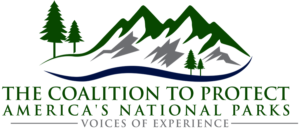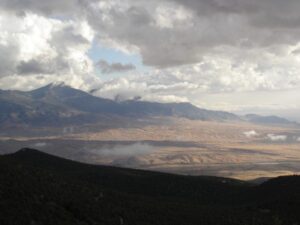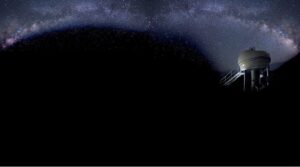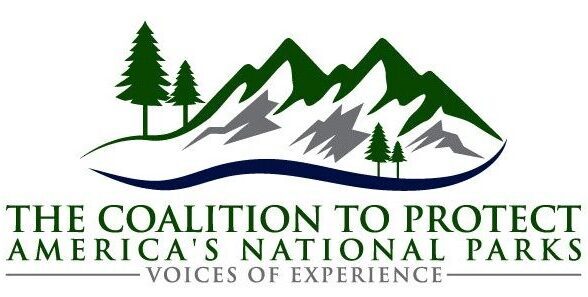
May 26, 2020
Great Basin National Park is one of the most remote parks in the National Park System. But visitors who make the trip are rewarded by beautiful scenery and some of the most stunning dark skies in the country. And this incredible national park has certainly benefited from the passion and dedication of its Friends Group.

Great Basin National Park Foundation (the Foundation) was started over twenty years ago by the late Bonnie Bryan, wife of U.S. Senator Richard Bryan and former First Lady of Nevada. Since then, the Foundation has helped to fund a bridge, build a visitor center, purchase exhibits, support the annual Bio Blitz, construct an observatory, and run programs.
I recently had the opportunity to chat about the group with Becky Mills, a member of the Foundation’s Board of Directors (and a former superintendent at Great Basin National Park) and Aviva O’Neil, the program manager for the Foundation. Both Becky and Aviva are enthusiastic advocates for the park. And they are justifiably proud of the Foundation’s many accomplishments.
The mission of Great Basin National Park Foundation is to enhance, preserve, and interpret the starry night skies, wide-open scenery, cultural heritage, and diverse native ecosystems of Great Basin National Park. The Foundation is the official, non-profit partner of the park and works very closely with park leadership to ensure their goals are aligned. The Foundation supports the park through donations to specific programs and projects, but they are also engaged in running some programs, including those at the Great Basin Observatory.

This observatory is an incredible achievement. Great Basin National Park has the darkest, clearest, and most stable skies in the lower 48 states. And this unique combination of factors attracts astronomers and physicists from around the world. An observatory has long been a vision of the park, but it was logistically challenging. Thankfully, with the help of the Foundation, the funding was raised, and a six-partner agreement was formed between the park, the Foundation, and four universities. And although the Observatory is located within the park (it is, in fact, the first-ever research grade observatory built in a U.S. national park) it is managed by the Foundation.
But the presence of a world class observatory isn’t just a benefit to the national park or astronomers. This collaborative project provides educational and community outreach opportunities as well.
“The observatory certainly provides people with a chance for exploration and discovery that can’t be found elsewhere,” says Aviva. “But there’s more to it than that. Kids in the area see this and realize they can become discoverers too. They realize that they could actually contribute to the knowledge of the universe. It’s inspiring.”
Aviva runs the Reach for the Stars program, an outreach and education program that allows people who have not or cannot visit in person to experience the park. The Foundation’s collaboration with local schools is creating positive connections between kids, their families, and the park – and hopefully inspiring a generation of middle schoolers to prioritize science and conservation and support their national parks.
“This is something we’re very proud of,” says Aviva. “It’s an innovative partner program. This park is so remote, which can be a challenge for visitation. But its remote location is what makes our dark skies so special.”
Becky agrees that one of their biggest challenges is the park’s remote location. There is only one small town near the park – not much for a potential membership base. Becky says, “our remote location can make it difficult to try to raise funds to support programs and projects.” But this just means the Foundation must think in broad terms when considering how to cultivate supporters. They have to look outside the immediate vicinity and find ways for people to connect virtually.
This remoteness also presents a challenge for the Board of Directors and staff, most of whom live and work in different locations throughout the country. However, Becky says they are lucky – their board and staff members all care deeply about the park and are engaged in the work, despite the logistical challenges. “If you’re looking to start a Friends Group, be thoughtful about selecting your Board of Directors. It really matters that you find capable people who have the diverse experience, networks, and skills that you need to succeed.”
Becky and Aviva encourage people to support their national parks and note that there are lots of groups who are looking for volunteers who love parks. They believe that even now, when so much of our attention is focused on urgent needs of health and safety, we need to keep an eye on the long game. “We have to continue to preserve and protect these places for the future,” Becky says.
The Great Basin National Park Foundation is keeping busy, running programs and preparing for the future. “There are successes and challenges. We have more work than we’re able to do,” says Aviva. “But this is a good thing. It’s a sign that you’re a good partner and trying to do as much as you can.”
The Foundation welcomes new supporters and volunteers. Because of their remote location, they are very open to virtual assistance. Consider joining their mailing list or making a donation to become a Guardian of Great Basin National Park. And for more information, visit http://www.greatbasinfoundation.org/.
